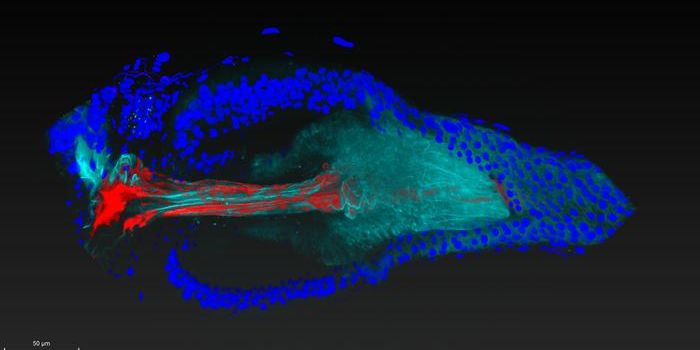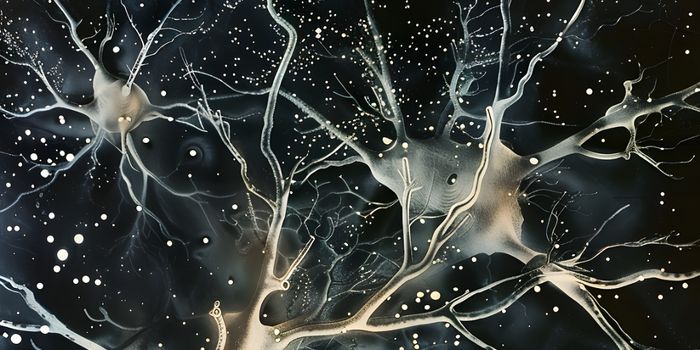How Psychiatric Disorders are Linked to Metabolic Dysfunction
It's not unusual for schizophrenia and bipolar disorder patients that take antipsychotic medications to rapidly gain weight, have abnormally high insulin levels, and develop prediabetes. Reporting in Translational Psychiatry, researchers may have now learned why that happens.
Antipsychotic drugs can block dopamine signaling, not only in the brain but also in the pancreas. In the pancreas, there are beta cells, the only cells in the body that generate and release the blood-sugar-lowering molecule insulin, while pancreatic alpha cells generate glucagon, which can raise blood glucose levels. That disruption in dopamine signaling appears to cause the uncontrolled production of insulin, which leads to diabetes and may be causing obesity as well.
"There are dopamine theories of schizophrenia, drug addiction, depression, and neurodegenerative disorders, and we are presenting a dopamine theory of metabolism," said lead author Despoina Aslanoglou, Ph.D., a postdoctoral fellow at Pitt's Department of Psychiatry. "We're seeing now that it is not only interesting to study dopamine in the brain, but it is equally interesting and important to study it in the periphery."
Dopamine is known as a molecule that sends signals from one neuron to another: a neurotransmitter, and it plays a role in learning, motivation, and pleasure.
Antipsychotic medications like clozapine, haloperidol, and olanzapine block D2-like receptors, a type of dopamine receptor. These drugs are thought to relieve symptoms by stopping dopamine molecules from having a neurological effect through this receptor. But this work has indicated that the story is not that simple.
"We still don't really understand how dopamine signals biologically," said the senior study author Zachary Freyberg, M.D., Ph.D., an assistant professor of psychiatry and cell biology at Pitt. "Even decades after dopamine receptors have been discovered and cloned, we still deploy this 'magical' thinking approach: something happens that's good enough. We use drugs that work on dopamine receptors, but how they intersect with this 'magical' system is even less understood."
If glucagon or insulin or the cells that produce them become dysfunctional, serious health problems arise. Low blood glucose can make us feel faint while high blood glucose can cause metabolic disease and cardiovascular complications. Dopamine seems to be involved in maintaining a balance.
The researchers determined that alpha and beta cells can both generate dopamine, indicating that the neurotransmitter can have physiological impacts outside the brain. The work also demonstrated that beta cells need to import L-DOPA, a dopamine precursor, to make dopamine. But alpha cells both produce their own L-DOPA and increase L-DOPA levels in repose to glucose.
The researchers suggested that alpha cells can use their own dopamine, but they might also be sending it to the D-2 like receptors on beta cells, which would inhibit the release of insulin. The team was surprised to find that the dopamine made in the pancreas can interact with molecules that are typically thought of as adrenaline and noradrenaline receptors.
If dopamine levels are low, it typically binds to inhibitory D2-like dopamine receptors, blocking the release of insulin or glucagon release. At high levels, dopamine seems to become stimulatory by binding beta-adrenergic receptors. This can explain why psychiatric patients have metabolic issues; antipsychotics block dopamine receptors in the brain as well as the pancreas, removing the regulation of insulin and glucagon. This desensitizes the body and promotes hyperinsulinemia, and hyperglycemia, and leads to obesity and diabetes.
"When you identify something so important, you have to make sure you find an application for it and improve people's lives," said Aslanoglou. "Our discovery can inform us of how to better formulate drugs to target dopamine signaling. This might be a novel pathway to therapeutics in both psychiatry and metabolism."
Sources: AAAS/Eurekalert! via University of Pittsburgh, Translational Psychiatry









